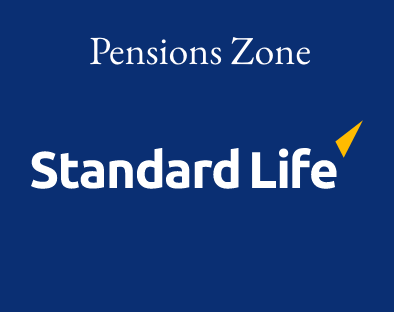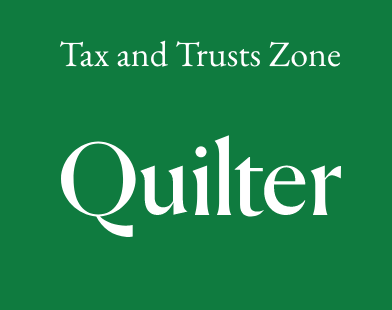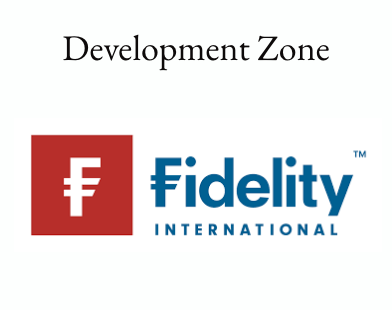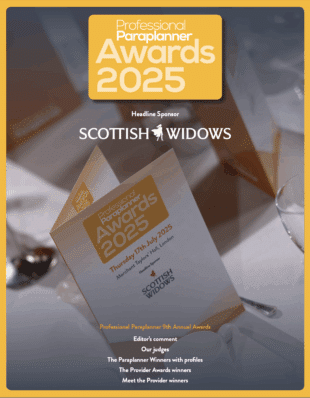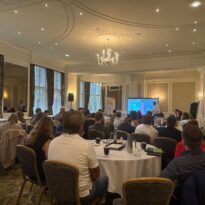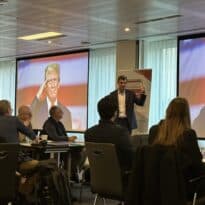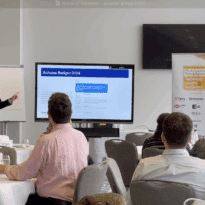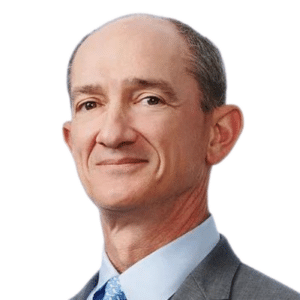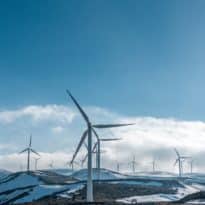In this week’s interview with Alec Cutler, manager of the Orbis Global Balanced fund, FundCalibre covers a wide range of topics as one would expect from a multi-asset manager. Known as a contrarian investor, the fund is designed to be all-weather and suitable for long-term investment.
Why you should listen to the interview: In his typical forthright manner, Alec shares his insights on the current environment and what his “four horsemen of the stock apocalypse” might bring. In the full interview, he also discusses investing in gold, capitalising on the AI trend and why, to his mind, ESG might suffer the same fate as SRI.
This interview was recorded on 22 May 2024. Please note, answers are edited and condensed for clarity. To gain a fuller understanding and clearer context, please listen to the full interview.
Interview highlights:
Thriving in the murk and difficult environments
“We’re trying to use different creative approaches to get across to people that the environment that they’ve been used to for the last 10 years or so is not a normal environment. It’s a wonderful environment for producing high nominal returns on investments, but the sun does set and we could be in for tougher sledding over the next 10-15 years.
“We think perhaps clients and investors should get used to lower returns in a more difficult backdrop. But as a contrarian investor, we thrive in the murk and we thrive in difficult environments. We’re happiest when we’re being given opportunities because the market’s puking them out!
“The kind of pinnacle of the puking phase would’ve been in 2020, 2021, beginning of 2022, where we were able to buy fantastic companies at very, very cheap multiples. Right now, we’re in a phase where some of those cheap companies are starting to re-appreciate in value but we’re still continuing to find replacements for them when they get too expensive for us to own.”
The sun is setting on Venus
“Yes, we think the global market looks fairly valued. The US market looks overvalued, but that overvaluation is coming from a concentration of a small number of names so it’s still a target-rich environment for us. From an investing style standpoint, we think this inflection of relative performance that we’re seeing is indicative of the sun setting on Venus. And that we’re going into an environment that many investors who have been crowded into the most popular stocks or long duration assets may find more difficult but we find a more level playing ground of fairness and interest in valuation around names. That gives us the ability to allow the portfolio to appreciate because our names are being appreciated for what they deliver to the economy or to earnings growth, and other names are being kicked out at the same time that we can invest in them.”
Investing in the UK is a “once in an investing lifetime” opportunity
“The Orbis Global Balanced fund is invested heavily in the UK and I think it’s a good representation of the kind of environment that we thrive in. In order to thrive from a returns standpoint, we need to be able to invest into high pessimism. And I think the UK investor will be able to relate to that pessimism if they’ve held UK stocks; they would have seen 10 years of water torture. But that provided us with the opportunity to accumulate really, really good companies. Some of these are excellent world-beating companies at valuations that we find once in an investing lifetime. And now we’re just starting to see glimmers of those names start to appreciate and for the market at all to appreciate what they bring to the table from an investment standpoint.”
Patience is the biggest part of the contrarian role
“I think patience is the watch word, not only for us as the investors controlling the portfolio, but also our clients, because they need to understand what we’re doing and understand that sometimes it’s a waiting game.
“Japan, for example, was a very long wait. And just when you think it’s never going to come to fruition, the Japanese government turns around and decides it can’t have its equity culture be so poorly rated by the rest of the world; it needs to see appreciation in the value of Japanese companies, and needs to get to global standard market valuations. So the government passed some regulations and laws and the Tokyo Stock Exchange followed up on those to really put pressure on Japanese managements to make their companies appreciate value. That’s been a great catalyst for us. We’ve rotated within the Japanese market, we continue to have around the same weighting. And now Korea, which is looking at Japan and saying, you know, we can do that too.”
The “stock apocalypse” – just as real as it’s ever been
“Despite the fact that we had this period of enthusiasm where the Fed was winking and nodding that they were going to cut interest rates and and that everyone should run out and buy long duration bonds, those fabled six interest rate cuts in 2024 now look like it’s going to be zero. Inflation hasn’t rolled over.
“Looking at the four horsemen of the stock apocalypse: the New Cold War. Defence names have appreciated, but from an inflation standpoint, all that defence spending that’s ramping up is inflationary because tanks don’t make anything, they’re non-productive.
“Labour power – the next horseman – peaked in 1981 when Reagan broke the US National Air Traffic Controllers Union, in 1985 when Margaret Thatcher broke the National Union of Mineworkers in the UK, labour has been on its back foot until about a year, year and a half ago. Now, with very low unemployment rates and ageing population, labour has a lot more power, and we’re re-shoring everything back to the Western world. All that is inflationary.
“The third horseman I just mentioned: re-shoring. The offshoring of a dirty industry or expensive industry to China kicked off when China joined the WTO in 2001. Now, they’re bringing industry back so if it was deflationary and a depressant on inflation to send your industry to China, bringing it back can’t be deflationary as well. It has to be inflationary.
“The fourth horseman is decarbonisation. It’s not a cycle, it’s a decision that we’ve made to decarbonise the economy, industry and from a consumer standpoint. So it’s everything from driving to EVs or driving cement manufacturers to switch from natural gas to electricity.
“Everyone can understand the EVs, but the cement manufacturers may be a little bit more difficult to understand, but if you tell a cement manufacturer they have to switch to electricity to burn limestone and to make concrete, they have to spend $2bn to rebuild their plant, to change what they’re burning. So, they have to amortise the cost of that over the next 20 years, say, through every 50lb bag of cement. It’s more expensive to make cement from electricity than it is from natural gas, otherwise, they would have done it from electricity to begin with. Now it’s more expensive from a variable cost standpoint; that has to be put through price increases. That’s inflationary. So any of the green spending that we talk about, or the electrification – that is all inflationary.
“So, those four things are not going away, they’re just as real as they’ve ever been.”
Idiosyncratic investments
“One of the things that we love to have in the portfolio somewhere is something that’s completely idiosyncratic. And if you were to look up the definition in the dictionary ‘idiosyncratic investment’, Burford Capital would be the example. It is a litigation finance company. And from a diversification standpoint, the drivers of a litigation finance company are completely unrelated to the economy or interest rates or currency or anything else. There’s also never been a down year in litigation anywhere in the world, so it’s also a nice growth industry. Burford invented the litigation finance industry.
“First, what they don’t do: they don’t fund mass tort claims where it’s class action law suits, and they’re not ambulance chasers. They look at, typically, corporate lawsuits where the plaintiff has a really good case but they’re running out of money. And one of the ways that a defendant – a big corporate defendant – wins is they just outspend the plaintiff until they run out of money. Burford then steps in and funds the remaining portion of the lawsuit for a percentage of the win.
“Their skill is around identifying lawsuits to back their rate of return on their investments that they have made. They effectively invest in lawsuits. Their IRR is 29% historically over 14 years. So it’s not only diversifying for us, but in a way it’s us outsourcing a portion of the portfolio to someone who has an investment return that’s better than ours.”
Conclusion: Alec’s passion comes through in this interview, bringing markets to life with his analogies and colourful examples, making the full interview not only an informative listen on what’s happening globally but an enjoyable one as well.
Main image: lazarescu-alexandra-vRiylUiR6ew-unsplash






